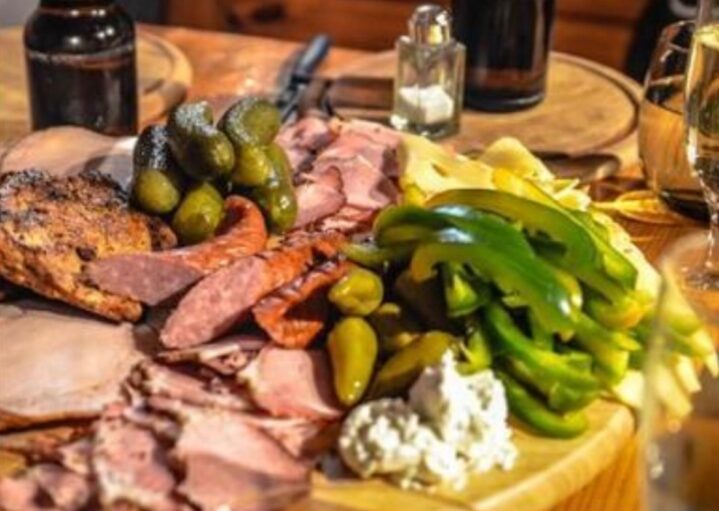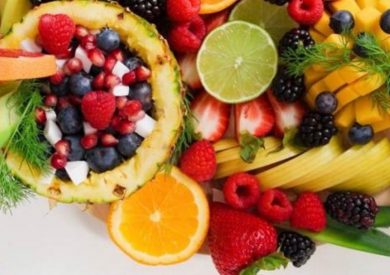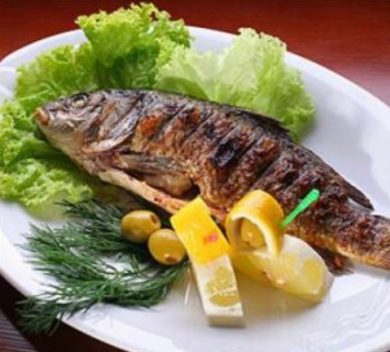
Create new traditions for Christmas and New Year
No matter where you live Christmas and New Year have wonderful traditions of either family recipes or cultural country recipes. From heavy roast lunches or dinners to puddings with cream or custard poured over the top. I grew up in a very hot climate where we moved from the traditional heavy roast lunches and dinners to lighter foods like salads with fruit for dessert, (cream was still on the table even if it was very hot). I enjoy how cultures around the world have kept their traditions.
One area that we don’t take into consideration is how the food reacts on the body. Heavy roasts and baked foods will make the body feel heavy and heat it up , whereas lighter foods, salads and curries keep the body much cooler in the hot and warm climates. You may want to investigate what your traditions are and see if they can be modified for where you live now.
Here are a few countries and some of the foods they enjoy during the festive time:
Christmas Eve in Albania they enjoy Byrek me kungull dhe arre traditional Albanian pumpkin and walnut cake.

Australia has gone more towards cooler foods: fish and cold meats with potato salad, seafood and salads, fruit platters and pavlova. Czech Republic and Slovakia: Kapustnica – Christmas cabbage soup, fried carp, potato salad with mayonnaise, hard boiled eggs and vanocni cukrovi – Christmas cookies and ginger bread. Finland: Christmas smorgasbord called a Yule Table.
This is an extensive display of hams with mustard, gravlax, pickled herring with tomatoes, mustard, or onion sauce, potato casserole, carrot casserole, cheese and Christmas breads along with an assortment of desserts, rice pudding, ginger bread and mixed fruit soup as well as prune soup. Iceland: smoked meats, game bird – from the grouse family, caramelised potatoes and pickled red cabbage with laufabraud, thin round cakes decorated with a leaf pattern. Portugal: depends on the region as they each have something special, meats, sweet potato cakes and orange cakes called bro casterlar.

To name just a few countries. This is not all they eat, some of these and other countries have quite a long extensive menu. Christmas is a time for family, friends and being together. As expatriates in Thailand sometimes that is not always the case and these events can be a quieter time. Perhaps this is your opportunity to invite people to your home and enjoy a festive day with them. Your menu might be made up of different dishes that each person brings.
Now you can start a new tradition for your Christmas lunch or dinner. How many nationalities can you invite and bring something from their country? This diversity doesn’t stop with Christmas traditions, New Year has its own food requirements around the world. In the USA black-eyed peas are a tradition in some areas to bring good luck for the New Year. The black-eyed pea has also been known in Ancient Egypt to show humility to those less fortunate. Germany and Eastern Europe enjoy the tradition of pickling cabbage.

During the late harvest there is a six-toeight-weeks fermenting process which means that sauerkraut is just about ready when New Year’s rolls arrives. Cabbage on New Year’s is steeped in symbolism – the strands of cabbage in sauerkraut or coleslaw can symbolise a long life, while cabbage can also symbolise money. The Greeks have a wonderful tradition of baking a cake with a trinket inside called Vasilopita. It is a sweet bread and whoever has the slice with the trinket is said to have good luck for the year. Collard greens in the south of the USA are hung by outside doors to ward off evil spirits.
Another reason people eat greens on New Year’s eve, it symbolises money and prosperity. In many Italian homes lentils are served after midnight again for prosperity as they look like coins. They are eaten with pot and sausages. In the Philippines they have a tradition of fruit. They take twelve fruits to symbolise each month. They too also look for round fruit. Mangoes and watermelon are also included. In many parts of the world pomegranates are eaten to symbolise fertility and birth and are eaten at the New Year. Mexico has tradition of eating grapes at midnight to symbolise the year ahead.
In some Scandinavian countries fish is a very important part of the New Year tradition. Herring for example is considered a harbinger of good fortune. Again, we see the silver scaled fish called to mind valuable money. Herring has a long history in this part of the world with how the year was viewed with the catch that was made due to the migration of the fish. This was all about trade. Now it symbolises good fortune and pickled herring is a topper for crostini at any party. In Japanese households, families eat buckwheat soba noodles, or toshikoshi soba, at midnight on New Year’s Eve to bid farewell to the year gone by and welcome the year to come.
The tradition dates back to the 17th Century, and the long noodles symbolise longevity and prosperity. In another custom called mochitsuki, friends and family spend the day before New Year’s pounding mochi rice cakes. Sweet, glutinous rice is washed, soaked, steamed and pounded into a smooth mass. Then guests take turns pinching off pieces to make into small buns that are later eaten for dessert.
As the Thai New Year is not until April 2019, it is so special that people get to celebrate two with all the traditions and food that go with it. Start your own traditions this year and bring in your culture, sharing with friends and family. Then seek those who want to be with you sharing theirs. Our world needs a lot more togetherness and happiness. Christmas and New Year is the perfect place to start.



